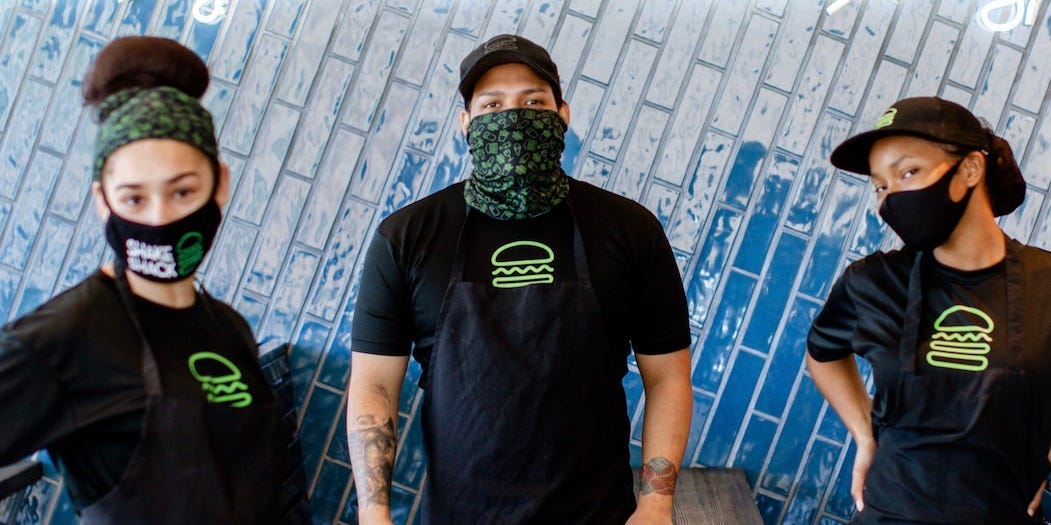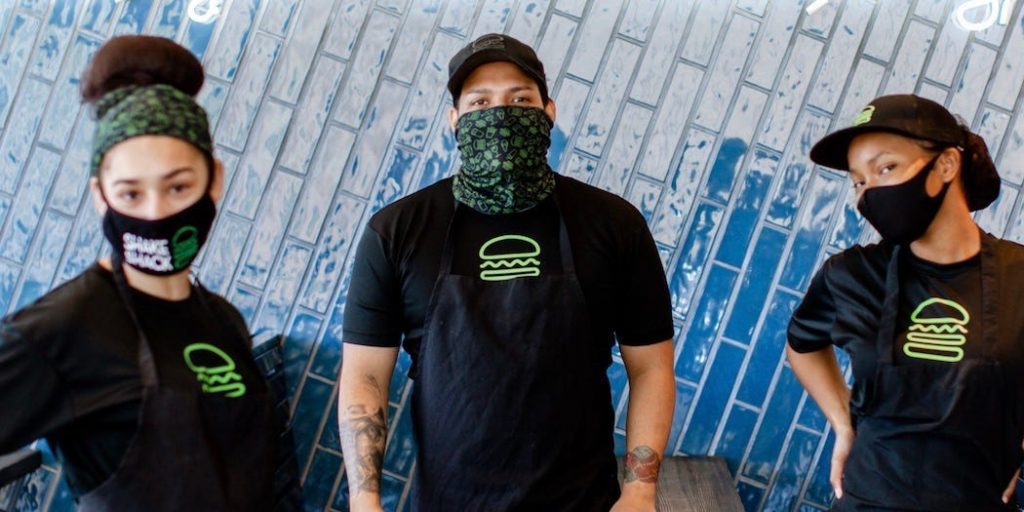
Shake Shack
- Many US companies are struggling to hire workers due to a widespread labor shortage.
- Shake Shack, Marriott, Johnson & Johnson executives have all noted hiring challenges recently.
- Nurses are quitting to earn multiples of their salaries working in COVID-19 and intensive-care units.
- See more stories on Insider's business page.
Many US companies are struggling to fill vacancies as pandemic fears, stimulus checks, clashes over COVID-19 vaccines, and other factors continue to disrupt the national job market.
Executives from dozens of public companies across various industries have bemoaned the worker shortage, and warned it could last for a while.
Here are some of their recent comments, according to transcripts on Sentieo, a financial-research site:
Randall Garutti, the CEO of Shake Shack, a fast-casual restaurant chain:
"You're seeing labor shortages everywhere. You're seeing it with vaccine mandates. You're seeing it with the challenges generally in staffing. It's hard for Shake Shack, as it is for so many others of our peers and friends in the industry.
"I expect that challenge is going to continue for some time. There isn't a restaurant friend of mine, whether a huge company or small, that is feeling fully staffed right now."
Kathleen Oberg, the executive vice president and CFO of Marriott International, a hotel chain:
"The combination of COVID and what COVID has meant for people's personal lives has had a real impact on labor for us, particularly where we've got hotels that have super-high occupancy levels. So in the Southeast as an example, and some parts of the Southwest, we've had tremendous labor shortages."
Steve Filton, the executive vice president and CFO of Universal Health Services, a provider of healthcare services:
"We're experiencing some pretty significant labor shortages. We have a lot of nurses chasing what I describe as premium COVID dollars. To be perfectly candid, I'm not sure I could blame them. We've got nurses who are literally getting 400% to 500% of their base salary to work in an acute care setting, maybe a COVID unit, maybe just an ICU. The hospitals that are hiring them to do this are training them, retraining them, et cetera.
"Honestly, it doesn't matter what we're willing to pay. If a nurse who makes $70,000 or $80,000 a year under normal circumstances, is presented with an opportunity to make $10,000 a week, and she goes into the office of the hospital's CEO and explains that to him or to her, there's really no counter to that."
Tod Carpenter, the CEO and president of Donaldson Company, a manufacturer of air filters:
"The labor issue in the United States is significant. There's a company close to one of our plants that went bankrupt, had 147 personnel that needed to find jobs. We were one of 31 companies that quickly got a work fair together. Basically all of those people could have had a job and 27 people showed up to that fair. Why is that happening in our country? I don't know."
Randall Breaux, the president of Motion Industries, a distributor of industrial parts:
"Labor is certainly a challenge for everyone right now, whether it be a shortage of workers or whether it be the cost of labor, and we've seen both in our businesses. Whether it's in a distribution center, whether it's in a customer-service center, the cost has gone up with our people cost."
Joseph Wolk, the executive vice president and CFO of Johnson & Johnson, a healthcare company:
"We're starting to see a worker shortage within the hospital systems. It's not due to stimulus checks or anything like that. It's really due to worker fatigue and vaccine hesitancy, whether it's on the part of the patients, or some hospital systems that are now mandating it, where healthcare workers decide to make a personal choice [not to get a vaccine]."

